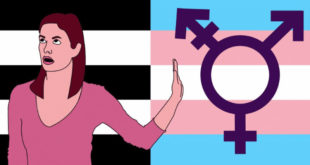Soon, Australia will be completely cleansed of white people.
Then, when it is totally brown, it will finally be diversely vibrant.
Australia’s new parliament looks set to be the most diverse, but there’s still a long way to go, diversity advocates say.
For the first time, both Northern Territory Senate spots will be held by Indigenous women – Labor’s Malarndirri McCarthy was re-elected and would be joined by the Country Liberal’s Jacinta Price.
In the House of Representatives, Linda Burney would become the first female Aboriginal minister for Indigenous affairs. The former minister, Ken Wyatt, was the first Indigenous person to hold that portfolio. Labor’s Marion Scrymgour (Lingiari), who was the first Indigenous woman to be elected to the NT parliament, and Wiradjuri emergency doctor Gordon Reid (Robertson) are newly elected.
Other winners with diverse heritage include independent Dai Le, who arrived in Australia as a Vietnamese refugee. She beat Labor’s “parachuted” candidate, Kristina Keneally in Fowler. Vietnamese Australian Tu Le, who wanted to contest Fowler for Labor but was bypassed in favour of Keneally, said Dai Le’s win showed Keneally did not represent the seat’s diversity.
Sally Sitou’s Chinese parents fled Laos after the Vietnam war. Sitou won Reid for the ALP, after sitting Liberal MP Fiona Martin appeared to confuse her with Tu Le.
In Western Australia, Malaysian-born Sam Lim ousted Liberal Ben Morton in what was the safe seat of Tangney. Lim, who moved to Australia in 2002, speaks 10 languages and is a former dolphin trainer and police officer.
Zaneta Mascarenhas, who is of Indian heritage, becomes the first woman to represent the WA seat of Swan.
Fatima Payman – the Muslim daughter of an Afghan refugee – is also on track to pick up a Senate spot.
Worth mentioning that after last night’s results in WA, the Australian parliament will look a little more like the country it represents.
Sam Lim and Zaneta Mascarenhas heading to the house of reps, while Fatima Payman still hoping for a senate spot @SBSNews https://t.co/JAdMNuczK9 pic.twitter.com/RFk3fNSJdu
— Aaron Fernandes (@az_journalist) May 22, 2022
Also>>
The ethnic diversity joining the ALP Caucus. Sally Sitou (Laos) Reid, Dr Ananda-Rajah (India) Higgins, Sam Lim (Malaysia) Tangney, Zaneta Mascarenhas (Kenya) Swan, Marion Scrymgour (First Australian) Lingiari, Cassandra Fernando (Sri Lanka) Holt.— Fiona Katauskas (@FionaKatauskas) May 21, 2022
Tu Le should have been elected the MP for Fowler tonight. Hope Labor, and all of Australian politics, can learn from this #auspol
— Naaman Zhou (@naamanzhou) May 21, 2022
If Kristina Keneally loses her seat, is this the end of "parachuting", and will Labor take cultural diversity within its party more seriously?
— Bridget Brennan (@bridgeyb) May 21, 2022
As a First Nations woman, I never imagined that this is where I would be today. A Senator for the state of Victoria.
I grew up believing that governments didn’t have me or others that grew up in similar circumstances to mine, at its heart. 1/3 🧵 #auspol pic.twitter.com/yUDOfrm4Gv
— Senator Jana Stewart (@JanaStewartVIC) May 22, 2022
Congratulations🙌🏾
Sally Sitou (Labor, Reid), Sam Lim (Labor, Tangney)
Zaneta Mascarenhas (Labor, Swan),
Michelle Ananda Rajah
(Labor, Higgins), Cassandra Fernando (Labor, Holt)
Dai Le (Independent, Fowler)@MediaDiverseAU pic.twitter.com/zChreHB233— Mariam Veiszadeh (@MariamVeiszadeh) May 22, 2022
Gee whiz looks what's happening. pic.twitter.com/triLQXCrLi
— Beverley Wang (@beverleywang) May 21, 2022
Will this be our most diverse parliament?
Both in terms of actual diversity and representation?
Indigenous women will be front and centre!!
Linda Burney,Marion scrymgour, Malarndirri McCarthy, Lidia Thorpe, Dorinda Cox, Jacinta Price #AusVotes2022 #ausvotes
— Sarah Collard (@Sarah_Collard_) May 21, 2022
Meanwhile, Singapore-born Liberal MP Ian Goodenough is fighting to hold on to Moore, in WA.
The final makeup of both houses is yet to be confirmed.
Diversity Council of Australia chief executive, Lisa Annese, welcomed the new additions, and said getting a parliament that reflects Australia’s actual makeup was a “work in progress”.
Tharini Rouwette, the founder and chief executive of the Centre of Multicultural Political Engagement, Literacy, and Leadership (Compell), said the election of diverse candidates should be celebrated but that the level of representation was still “pathetic”.
Her analysis shows about 7% of the House will comprise diverse and Indigenous MPs, which is far lower than in the general Australian population.
The Senate is set to have a majority of women, and 14 new women have been elected to the House of Representatives. Three have lost their seats.
However, the wave of teal independents has been criticised as lacking ethnic and cultural diversity.
Rouwette has been critical of the Climate 200 independents, and said their leadership team was predominantly white.
“It almost seems like climate change is a white issue. It’s not,” she said. “People of colour care about it, but their voices haven’t been heard.”
She set up Compell to collect data on diversity in parliaments, because no one is doing that properly.
“And you can’t manage what you can’t measure,” she said. “I started Compell, because as a migrant myself [from Singapore], I’ve been so frustrated that my ability to participate in democracy was limited.
“I wanted to create something that existed outside the realm of any political agenda.”
It’s truly a wonderful time to be alive.
We’re finally watching whites be wiped out once and for all.
 Daily Stormer The Most Censored Publication in History
Daily Stormer The Most Censored Publication in History


